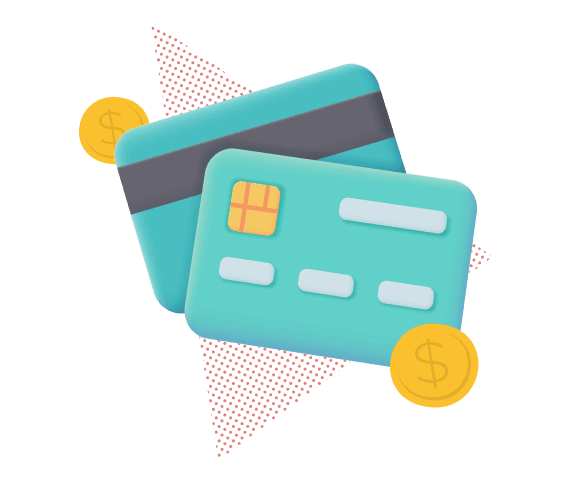What Is A Credit Card Outstanding Balance, and How Does It Affect Your Finances?
Updated: 22 May 2025
Understanding your credit card's outstanding balance is key to financial well-being in Singapore. Ignoring it can lead to unnecessary costs and impact your credit health. Let's break it down.
Written bySingSaver Team
Team
The information on this page is for educational and informational purposes only and should not be considered financial or investment advice. While we review and compare financial products to help you find the best options, we do not provide personalised recommendations or investment advisory services. Always do your own research or consult a licensed financial professional before making any financial decisions.
In Singapore's financial landscape, keeping track of your credit card's outstanding balance is crucial for maintaining a healthy financial standing and a good credit score. Knowing the exact amount you owe empowers you to manage your finances effectively and avoid the pitfalls of accumulating unnecessary debt.
Here's what you need to know.
» Read more: How to read your credit card statement
What does an outstanding balance mean?
The outstanding balance on your credit card is the total sum you owe to the card issuer at any given point. This running total encompasses all your transactions, including purchases, cash advances, balance transfers, as well as any applicable fees and credit card interest that have been posted to your account.
For instance, when you log into your DBS or UOB credit card account online or via their mobile app, the figure you see as the "current balance" is your outstanding balance. This amount fluctuates daily based on your spending and payments. OCBC, similarly, provides this real-time figure, reflecting all debits and credits to your card.
Understanding this "living number" is vital, as it represents the most up-to-date amount you are obligated to repay to the card issuer.
Manage your outstanding credit card balance smartly
Find and compare credit cards in Singapore with balance transfer features and attractive interest rates.
Outstanding balance vs. statement balance: Understanding the difference
While your credit card outstanding balance reflects the total amount you owe at any given moment, the statement balance shows the amount you owed as of your last credit card closing date, typically covering a period of around 30 days.
This means that while the outstanding balance is a real-time figure, fluctuating with each transaction or payment, the statement balance is a snapshot of your debt at the end of a billing cycle.
You can estimate your statement balance as follows:
-
Add up all purchases, fees, balance transfers, and cash advances made within the billing period.
-
Add up all payments and statement credits applied within the same billing period.
-
Subtract the second amount from the first. The result is your statement balance.
For example, if your DBS credit card's billing cycle ends on the 20th of each month, your statement balance on that date will reflect all transactions and payments processed between the previous 21st and the current 20th. However, if you make additional purchases using your POSB credit card after the 20th, your outstanding balance will increase to include these new charges, even though they won't appear on that month's statement balance.
Similarly, if you make a payment towards your UOB credit card after the statement closing date but before the payment due date, your outstanding balance will decrease, but your statement balance will remain the same.
It's generally advisable to pay at least the statement balance by the due date to avoid incurring interest charges. However, to maintain a low credit utilisation ratio, a key factor in your credit score as reported by the Credit Bureau Singapore (CBS), and to avoid all interest, it's often beneficial to pay the full outstanding balance.
This means that you're clearing all your debt, not just the amount that was due at the last statement. Knowing how to pay both your statement balance and your outstanding balance effectively contributes to a healthy credit profile in Singapore.
Should you pay off your credit card's outstanding balance?
If you have the means to pay the full outstanding balance on your credit card each month, it's undoubtedly the most financially savvy approach.
By settling the entire current amount owed, you'll completely clear your credit card bill and avoid incurring any interest charges whatsoever – a definite win for your wallet.
Conversely, leaving a balance on your credit card, even a small one, will impact your credit score over time.
Credit bureaus in Singapore, like elsewhere, prefer accounts with a low credit utilisation ratio, which is the percentage of your total available credit that you're using. Paying the full outstanding balance ensures your credit utilisation ratio for that card resets to an ideal 0%.
Furthermore, paying the full outstanding balance prevents interest from accruing on your purchases. Even paying the full statement balance allows you to take advantage of the grace period, where new charges won't accrue interest until the subsequent billing cycle's due date.
However, remember that some card issuers may not offer a grace period, or they could revoke it if you don't consistently pay your balance in full. Failing to pay at least the minimum outstanding balance will lead to late payment fees, additional interest charges, and potential damage to your credit score.
» Read more: When is the best time to pay your credit card bill?
Find the best credit card deals in Singapore
Expand your financial freedom with the best credit cards in Singapore. Compare perks like cashback, offers and rewards at a glance, and sign up for a card that meets your needs.
Relevant articles
How to Read Your Credit Card Statement
Demystify your credit card statement and take control of your finances. Understand every charge, reward, and payment detail
About the author
SingSaver Team
At SingSaver, we make personal finance accessible with easy to understand personal finance reads, tools and money hacks that simplify all of life’s financial decisions for you.
